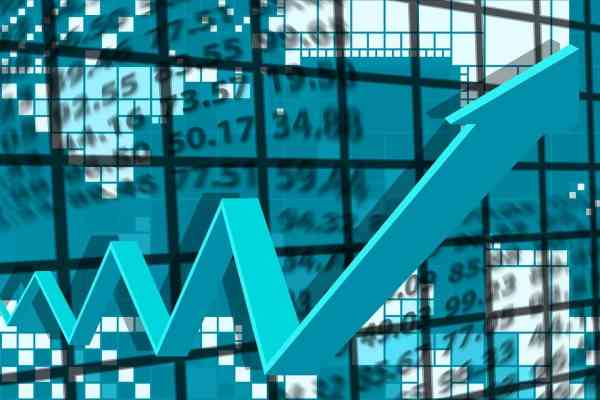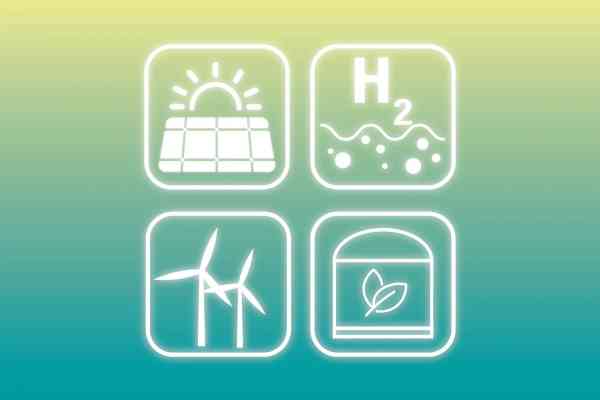July 21st, 2022 | 11:29 CEST
dynaCERT, Mercedes-Benz Group, Volkswagen - Luxury shopping, retro branding and applicable green technology
The future of automotive is characterized by emission-free drives. Soon, the Mercedes will become a payment device through fingerprint technology in the car. It will be the first automotive company in the world to embed a Visa cloud token framework in its vehicles. Competitor Volkswagen, on the other hand, is focusing on retro branding and strengthening its US business with its own fully electric pickup brand. Meanwhile, dynaCERT offers applicable technology for diesel engines of all types for sustainable greenhouse gas reductions. Investors will find out how far the Company has come with its development in September at the IAA in Hanover.
time to read: 5 minutes
|
Author:
Juliane Zielonka
ISIN:
DYNACERT INC. | CA26780A1084 , MERCEDES-BENZ GROUP AG | DE0007100000 , VOLKSWAGEN AG ST O.N. | DE0007664005
Table of contents:

"[...] We are committed to stay as the number one Canadian and global leader in the Hydrogen-On-Demand diesel technology [...]" Jim Payne, CEO, dynaCERT Inc.
Author
Juliane Zielonka
Born in Bielefeld, she studied German, English and psychology. The emergence of the Internet in the early '90s led her from university to training in graphic design and marketing communications. After years of agency work in corporate branding, she switched to publishing and learned her editorial craft at Hubert Burda Media.
Tag cloud
Shares cloud
Mercedes-Benz Group AG - Car becomes a secure payment device through in-car payment
We all know the scenario - the suitcases and bags for the vacation are packed, and the family is on board. At the next gas station stop, it hits you like a bolt of lightning: the credit card wallet is lying on the desk at home, and there is not enough cash to pay the gas station attendant. Mercedes drivers will be relaxed in a situation like this in the future. According to S&P Capital Pro, Daimler Mobility AG is launching a new global technology partnership with financial services company Visa Inc. to offer "native" in-car payments. Starting in spring 2022, Mercedes-Benz AG customers in the United Kingdom and Germany will be able to make in-car payments using a fingerprint sensor. The entire car will be transformed into a payment device thanks to authenticated fingerprints.
The so-called Mercedes Pay is a component of the mobility and digitalization strategy of Mercedes-Benz and a new business area of the automotive Group. The automobile is mutating into a two-factor certification. So in the future, when an SUV driver from Munich-Schwabing, for example, is on the road with his wife, nothing will stand in the way of a spontaneous short vacation in Sankt Moritz. Everything will be organized from the car and paid for securely.
What seems like a marketing gimmick in the upscale segment opens up unimagined possibilities for joint ventures in the new Mercedes Pay segment for Mercedes-Benz Group AG. From matching luxury brands in the fashion industry, consumer electronics, sports and leisure - the digital commerce partnerships enable Mercedes-Benz Group AG to build even stronger brand loyalty. From a value investing perspective, the automotive Group is thus strengthening its brand core and increasing its moat. The security that Mercedes anchors as a value will also transfer to payment transactions in the future through "in-car payment" technology. The question remains as to how long a Visa exclusivity will thus make the Stuttgart-based company unique.
Volkswagen - Reallocation, reset with retro branding in the USA
The reallocation of Volkwagen's business is in full swing in light of the Ukraine conflict. To meet dynamic market conditions in Europe and Germany in particular, the Group is relocating part of semiconductor production to China, North America and the rest of the world. Thanks to the short-term measures, the Group is able to record sales of 217,100 fully electric vehicles (BEVs) to customers in China (H1 2021: 170,900).
In terms of battery electric vehicle (BEVs) deliveries by region, Europe remains the clear leader with 128,800 vehicles in the first half of the year. This represents a share of 59% of the Group total. China is in second place at 29%, and the US accounts for 8% of the Volkswagen Group's global BEV deliveries.
The turnaround plans are also slowly taking shape in Germany. Construction of the in-house battery company "PowerCo" is starting in Salzgitter, Germany. The production site will be responsible for the Volkswagen Group's global battery activities. An investment volume of over EUR 20 billion is planned for the construction and expansion. The plant is the starting signal for VW's battery offensive: six cell factories in Europe and further factories in North America. It is not yet clear to what extent the gas crisis will affect the construction and the start of production.
The reallocation strategy also includes strengthening the North American business. According to Barron's, the Group will soon offer North Americans 25 EV models under its Scout brand. Fully geared to US customers, Volkswagen is focusing on all-electric pickups and rugged SUVs.
Just as FIAT once did, VW is using retro branding: the familiar Scout model from the '60s is being updated, both visually and electronically. It used to be marketed as an off-road recreational vehicle for the whole family, but with the electronic model, it describes the feeling of life and freedom of a generation of departure into a new era. For VW, electrification is a unique opportunity to redefine itself. "Electrification is a reset for me," says Scott Keogh, the newly appointed CEO and president of the Scout Company.
dynaCERT - Clean power from diesel engines
In the logistics industry, many vehicles currently run on diesel. In order to reduce CO2 emissions in this sector, Canadian company dynaCERT has developed a technology that has been proven to reduce carbon emissions and improve fuel efficiency through patented technology. The HydraGEN technology developed by dynaCERT transforms diesel engines into clean power. By reducing stock oxide by up to 88%, carbon monoxide by 47%, and pollutant particulates by 55%, the setup results in fuel savings of 6% to 19%.
Nitrogen oxide is extremely hazardous to health and the environment, contributing to the formation of smog and acid rain and destroying the earth's protective tropospheric ozone. The technology not only saves users money but also helps businesses operate in an environmentally responsible manner. Nitrogen oxide, carbon monoxide, carbon dioxide and particulate matter are all harmful to the environment and are drastically reduced with HG technology.
dynaCERT holds worldwide patents for the means and methods to monitor and monetize emission credits in the context of diesel engine emission reductions in 12 different industries. dynaCERT's technology is capable of generating emission credits and has a mechanism for the end user to share 50% of the revenue.
For commercial vehicle manufacturers, dynaCERT's technology can provide the bridge until the shift to EV models is complete. Geopolitical tensions are leading to a battle for rare earths, which are needed to produce electric batteries.
Those looking for alternatives in Germany as a production location can meet dynaCERT in person at the IAA in Hannover. From September 20 - 25, 2022, in Hall H24, Booth D15, the team will also be available to answer questions from investors. Commercial vehicle manufacturers such as Daimler Truck, DAF, Ford, IVECO, MAN and Scania will also be exhibiting and providing insight into their forward-looking technologies.
The mobility industry is changing. While Mercedes-Benz is increasingly focusing on new business through joint ventures in the luxury segment and turning the car into a means of payment, Volkswagen is increasingly expanding its business in North America in the wake of geopolitical tensions. With the launch of its own company Scout, the carmaker plans to offer the US 25 EV models in pickups and SUVs. But the future needs bridging technologies like the solution from dynaCERT. Trucks on the road still run on diesel engines - and the Canadian company offers a way to reduce these CO2 emissions. If you would like to get to know dynaCERT, they will have their own booth at this year's IAA in Hanover.
Conflict of interest
Pursuant to §85 of the German Securities Trading Act (WpHG), we point out that Apaton Finance GmbH as well as partners, authors or employees of Apaton Finance GmbH (hereinafter referred to as "Relevant Persons") may hold shares or other financial instruments of the aforementioned companies in the future or may bet on rising or falling prices and thus a conflict of interest may arise in the future. The Relevant Persons reserve the right to buy or sell shares or other financial instruments of the Company at any time (hereinafter each a "Transaction"). Transactions may, under certain circumstances, influence the respective price of the shares or other financial instruments of the Company.
In addition, Apaton Finance GmbH is active in the context of the preparation and publication of the reporting in paid contractual relationships.
For this reason, there is a concrete conflict of interest.
The above information on existing conflicts of interest applies to all types and forms of publication used by Apaton Finance GmbH for publications on companies.
Risk notice
Apaton Finance GmbH offers editors, agencies and companies the opportunity to publish commentaries, interviews, summaries, news and the like on news.financial. These contents are exclusively for the information of the readers and do not represent any call to action or recommendations, neither explicitly nor implicitly they are to be understood as an assurance of possible price developments. The contents do not replace individual expert investment advice and do not constitute an offer to sell the discussed share(s) or other financial instruments, nor an invitation to buy or sell such.
The content is expressly not a financial analysis, but a journalistic or advertising text. Readers or users who make investment decisions or carry out transactions on the basis of the information provided here do so entirely at their own risk. No contractual relationship is established between Apaton Finance GmbH and its readers or the users of its offers, as our information only refers to the company and not to the investment decision of the reader or user.
The acquisition of financial instruments involves high risks, which can lead to the total loss of the invested capital. The information published by Apaton Finance GmbH and its authors is based on careful research. Nevertheless, no liability is assumed for financial losses or a content-related guarantee for the topicality, correctness, appropriateness and completeness of the content provided here. Please also note our Terms of use.




